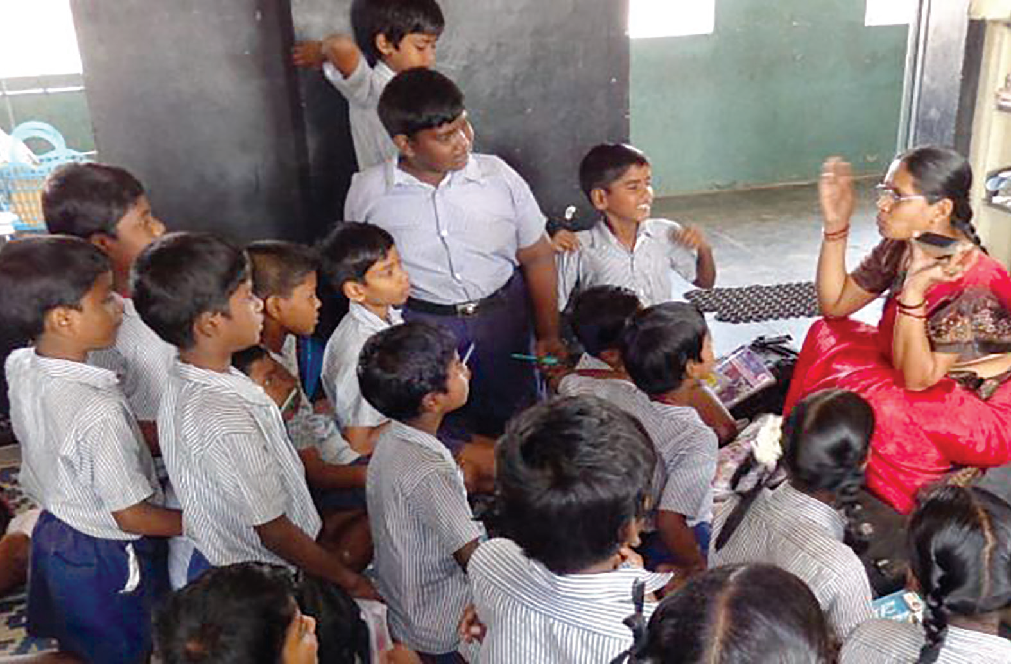
Centre amends RTE rules, allows states & UTs to end no-detention policy for classes 5 and 8
At least 16 states & two Union territories have decided to scrap no-detention policy established under Right to Education Act of 2009, while 16 others have opted to retain it
Fareeha Iftikhar
The Centre has notified the Right of Children to Free and Compulsory Education (Amendment) Rules, 2024, allowing states to abolish the “no-detention policy” and detain students in classes 5 and 8 if they fail their examinations. The amended rules aim to provide additional support and guidance to help such students reach the required learning levels. At least 16 states and two Union territories have decided to scrap the no-detention policy established under the Right to Education (RTE) Act of 2009, while 16 others have opted to retain it.
The policy prevents students from being detained until they complete Class 8. Senior government officials confirmed the developments Monday. The RTE Act 2009 originally mandated that no student could be detained until Class 8, regardless of their academic performance. However, a 2019 amendment to the act gave states the discretion to detain students in classes 5 and 8 if they failed their annual examinations twice. According to officials, the delay in implementing these changes was due to the rollout of the National Education Policy (NEP) 2020 and the National Curriculum Framework for School Education (NCFSE) 2023.
“The school education department decided to wait for the NEP and NCF-SE recommendations to adopt a more comprehensive approach,” a senior government official, who wished not to be named, told The Print. “The notification was issued after incorporating guidance from both the NEP and NCF-SE.” The no-detention policy, which applied to students in classes 1 through 8, has faced criticism for negatively affecting learning outcomes.
“The government received numerous requests from stakeholders to revisit this policy. Extensive consultations were held with state governments before amending the Act,” said a government official. Educational experts have argued that the policy inadvertently reduced accountability and hindered the academic progress of weaker students. The amended rules aim to strike a balance between promoting equity and maintaining academic rigour.
Benefits of policy change, key features of amendment: Government officials argue that the policy change will benefit students struggling academically by offering them targeted support. “Students will receive additional guidance to address their l earning gaps. Without the prospect of detention, the re is little incentive to focus on areas of weakness.
This change gives children the opportunity to catch up,” said another senior official. The Right of Children to Free and Compulsory Education (Amendment) Rules, 2024, introduces regular examinations for classes 5 and 8 at the end of each academic year. If a student fails to meet the promotion criteria, they will be provided with additional instruction and allowed to retake the examination within two months of the initial results.
Should the student fail the re-examination, they will be detained in class 5 or 8, as applicable. The notification further specifies that class teachers will guide students and their parents as needed, providing specialised input to address learning gaps identified during assessments. It also says the head of the school will maintain a list of detained students, monitor their progress, and ensure they receive the necessary academic support.
Examinations and re-examinations will be competencybased, designed to encourage holistic development rather than rote memorisation, it says. The amended rules maintain that “no child shall be expelled from any school until they complete elementary education.”
Impact on CBSE: schools According to officials, all schools under the central government including Kendriya Vidyalayas, Jawahar Navodaya Vidyalayas, Sainik Schools, and CBSE schools in Union territories without legislatures (Andaman and Nicobar Islands, Chandigarh, Dadra and Nagar Haveli and Daman and Diu, and Lakshadweep) will implement the revised policy. In states, CBSE-affiliated schools will adhere to the decisions of their respective state governments.
For instance, CBSE schools in Noida, Uttar Pradesh will continue with the no-detention policy, while those in Delhi will follow the amended rules and conduct examinations with the option to detain students. “Since education is a state subject, the implementation of this policy will depend entirely on the decisions made by individual state governments,” the official added. (Source: The Print)
 English daily published in Bengaluru & Doha
English daily published in Bengaluru & Doha






